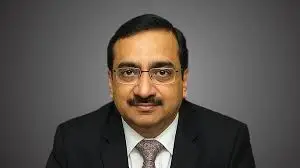Ex-UCO chairman arrested | South Delhi house to travel: Bribes flowed via web of entities, finds ED

The Enforcement Directorate (ED) arrested Subodh Kumar Goel, former Chairman and Managing Director of UCO Bank. This arrest is a major step in tackling financial crimes in India’s banking sector. It relates to a ₹6,200 crore fraudulent loan case. The probe reveals how corrupt officials used complex schemes to steal public money. This case exposes the deep-rooted corruption in public sector banks.
Background of the Case
During his tenure, Goel approved a large loan to Concast Steel and Power Ltd. (CSPL), a Kolkata-based company. The loan amount exceeded ₹6,200 crore. Later, the loan turned into a Non-Performing Asset (NPA). This raised serious doubts about the approval process.
The ED’s investigation found that Goel accepted bribes to approve the loan. He routed the bribes through a complicated web of companies. These companies had cross-holdings, making it difficult to track the funds. The network helped hide illegal payments.
Web of Entities and Money Laundering
The ED discovered nine companies linked to Goel. These companies helped mask the flow of bribes. The money passed through multiple layers to avoid detection. Eventually, the funds reached accounts belonging to Goel and his family.
The probe also showed Goel used the defaulter company’s funds for personal expenses. His family’s travels, luxury items, branded goggles, dry fruits, and hotel stays were paid from these funds. These expenses reveal how deeply corruption had penetrated.
Bribery and Illegal Gains
The ED uncovered that Goel received more than just cash. He gained valuable properties and luxury perks. These gifts helped cover up the illegal origins of the money.
This case reveals how some senior bank officials exploit their positions for personal gain. The fraudulent loan not only caused massive losses to UCO Bank but also harmed public trust in government banks.
Impact on Banking and Further Investigations
This scandal has shocked India’s financial watchdogs. It shows how vulnerable public banks remain to internal fraud. Regulators now call for stronger oversight and transparent loan approval processes.
The ED continues to investigate the entire network of companies. Officials are checking if other bank employees or outsiders helped launder the money.
This case warns financial institutions and their leaders: corruption will face strict action. The government has prioritized fighting financial crimes and supports the ED’s efforts to prosecute offenders.
Legal Process and Future Outlook
Goel’s arrest starts a long legal process. The ED filed charges under the Prevention of Money Laundering Act (PMLA). Other agencies might file fraud and conspiracy charges.
Experts expect the probe will reveal more financial crimes. It could lead to more arrests and recovery of stolen funds.
This case might also push reforms in public banks. Improved controls, audits, and accountability will help prevent future fraud.
Public and Political Reactions
The arrest triggered widespread debate about corruption in banks. Citizens and leaders expressed concern about officials misusing their power. Many stressed the need for stronger anti-corruption measures.
Political parties praised the ED’s swift action. They highlighted the need to restore trust in financial institutions. The case is likely to feature in political discussions about governance and transparency.
Conclusion
The ED’s arrest of Subodh Kumar Goel marks a key victory against corruption. The case exposes how bribery and money laundering operate in public banks. It also stresses the urgent need for reforms and vigilance.
As the investigation unfolds, it sends a clear message: no one is above the law. The public and regulators will closely watch the legal proceedings. They hope for justice and a stronger banking system.






